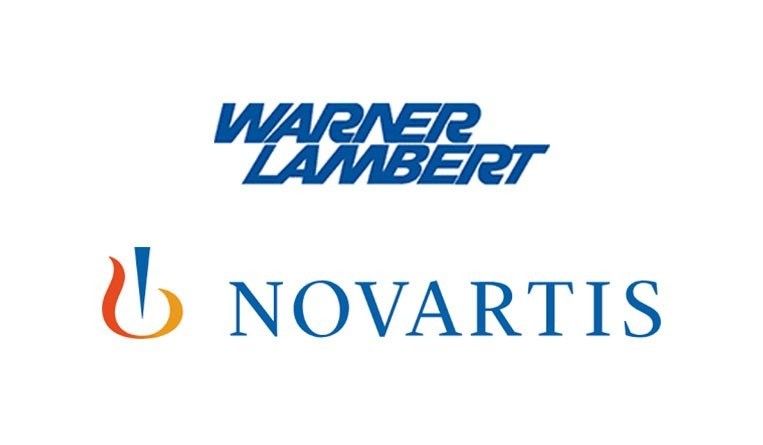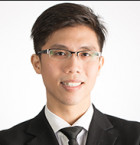Post-Grant Amendments from Method of Treatment to Swiss-Style – The Singapore Position Clarified
19 October 2017

Warner-Lambert Company LLC v Novartis (Singapore) Pte Ltd [2017] SGCA 45
In the landmark case of Warner-Lambert Company LLC v. Novartis (Singapore) Pte Ltd [2017] SGCA 45, the Singapore Court of Appeal explored, inter alia, the permissibility of amending method of treatment claims to Swiss-style claims.
Significantly, the matter was heard before a five-judge panel in the Court of Appeal. Court of Appeal hearings typically feature a three-judge panel; a quorum of five judges is reserved for cases of particular importance.
Background
The plaintiff, Warner-Lambert Company LLC, is the owner of Singapore Patent SG 61244, which claims a monopoly over the use of the active pharmaceutical ingredient pregabalin for the treatment of pain.
The defendant, Novartis (Singapore) Pte Ltd, applied for product licences to market generic pregabalin products in Singapore.
Pursuant to Section 12A(3)(a) of the Singapore Medicines Act (Cap 176, 1985 Rev Ed), Novartis notified Warner-Lambert of its product licence applications and declared that the Singapore patent would not be infringed by the pregabalin products. Subsequently, Warner-Lambert commenced action against Novartis, seeking a declaration that the pregabalin products would infringe the Singapore patent.
Novartis counter-claimed for a revocation of the Singapore patent, on the ground that the claims of the Singapore patent were directed towards a method of treatment of the human or animal body. Under Section 16(2) of the Singapore Patents Act (Cap 221, 2005 Rev Ed), such claims are impermissible because they are not capable of industrial application.
In an attempt to cure the invalidity, Warner-Lambert applied for leave to amend the claims of the Singapore patent, postgrant, from method of treatment claims to Swiss-style claims.
Warner-Lambert’s application to amend the Singapore patent was dismissed by the High Court (reported in Warner-Lambert Co LLC v. Novartis (Singapore) Pte Ltd [2016] 4 SLR 252), which rejected the amendment application on the grounds that:
a) The amendments sought would extend the scope of protection of the Singapore patent; and
b) There had been undue delay in bringing about the amendments.
The Court of Appeal affirmed the High Court’s decision and dismissed Warner-Lambert’s appeal. In obiter, the court also considered whether second and subsequent medical uses of known substances were patentable, and the validity of Swissstyle claims in framing such uses.
Decision of the Court of Appeal
The amendments extended the scope of protection of the Singapore patent. Under Section 84(3) of the Patents Act, a post-grant amendment to the specification of a patent will be disallowed if the proposed amendment:
a) Results in the specification disclosing any additional matter, or
b) Extends the protection conferred by the patent.
The court began its analysis by drawing a distinction between “potentially invalid” claims (where a patent might have been anticipated by prior art but the claims could have been further amended to ensure their continued validity) and “obviously invalid” claims (where the patent failed to meet even the threshold criteria for patentability).
The court observed that amendments to an “obviously invalid” patent were artificial and should be rejected, as the amendments could not rectify a patent which was invalid at the time of grant and had no protection to begin with.
In the present case, the court held that the obviously invalid claims of the Singapore patent (which were all method of treatment claims lacking industrial application) would already be fatal to any post-grant amendment application.
Nevertheless, for completeness, the court also affirmed the High Court’s finding that amending the granted claims from method of treatment claims into Swiss-style claims would extend the scope of protection conferred by the Singapore patent, as the amended claims protected the manufacture of a medicament while the granted claims protected a method of treatment of the human body.
There had been undue delay in bringing about the amendments. Even if the proposed post-grant amendment does not disclose additional matter or extend the protection of the patent, it would still be possible for a Singapore court to exercise its general discretion to reject an amendment application.
In this regard, the court held that a Singapore court, when exercising its general discretion, should consider the various factors laid down by Aldous J (as he then was) in Smith Kline & French Laboratories Limited v. Evans Medical Limited [1989] FSR 561. One such factor was whether the patentee had delayed in seeking the amendments (and, if so, whether there were reasonable grounds for such delay).
In the present case, the court found that there was a delay of well over a decade before Warner-Lambert applied to amend the patent in 2015. This was despite the fact that Warner- Lambert had many opportunities (pre-grant and post-grant) to amend the Singapore patent, and despite the fact that the International Preliminary Examination Report (IPER) received by Warner-Lambert in February 1998 (during the international phase of the corresponding application filed under the Patent Cooperation Treaty) had already alerted Warner-Lambert to the possibility that “[c]laims directed to methods of treatment of the human or animal body by therapy might be found inadmissible in some patent systems.”
In fact, Warner-Lambert had amended the claims from method of treatment claims to Swiss-style claims for the corresponding European application in December 1998. Warner-Lambert had also (at various times in 2005, 2007, and 2008) amended the claims in other Singapore patent applications from method of treatment claims to Swiss-style claims, but failed to do the same for the Singapore patent.
The court noted that the Singapore patent was granted under the previous self-assessment regime (which was in force before February 2014 and placed the onus on the patent applicant to self-certify the patent’s compliance with Singapore’s patentability requirements), and commented that it was incumbent on Warner-Lambert to amend the Singapore patent at the earliest possible opportunity so as to uphold the public interest in “preventing unworthy inventions and products from monopolizing the market.”
Although Warner-Lambert argued that it had only received legal advice alerting it of the need to amend in March 2015, the court agreed with Novartis that Warner-Lambert did not require actual knowledge of the invalidity of the Singapore patent before being put on notice of the need to amend, since constructive knowledge of matters (such as the IPER received by Warner- Lambert in 1998) which cast suspicion on the validity of the patent would already suffice.
Given that Warner-Lambert’s lengthy delay in seeking the amendments was not properly explained, the court held that the High Court was right to exercise its general discretion to reject the proposed amendments.
Second medical use and Swiss-style claims. The issues of whether second and subsequent medical uses of known substances are patentable, and the validity of Swiss-style claims in framing such uses, have never been canvassed fully in Singapore.
Without having had the benefit of full arguments on these issues, the court commented in obiter that Section 14(7) of the Patents Act appeared to support the patentability of second and subsequent medical uses of known substances.
The approach of the court may be contrasted with that in the United Kingdom, where the equivalent provision (i.e. Section 2(6) of the UK Patents Act 1977) has been interpreted as protecting only the first medical use of known substances.
Section 14(7) of the Patents Act provides:
“In the case of an invention consisting of a substance or composition for use in a method of treatment of the human or animal body by surgery or therapy or of diagnosis practised on the human or animal body, the fact that the substance or composition forms part of the state of the art shall not prevent the invention from being taken to be new if the use of the substance or composition in any such method does not form part of the state of the art.”
Diverging from UK jurisprudence, the court opined that a broader and more purposive interpretation could be adopted in respect of Section 14(7) of the Patents Act, where “any such method” in the latter half of Section 14(7) could be taken to refer to “a method of treatment of the human or animal body by surgery or therapy or of diagnosis practised on the human or animal body.” However, this would in no way prevent Section 14(7) from bearing the meaning that any use (first or subsequent) would be novel, so long as such use did not form part of the state of the art.
On this basis, the court observed that it might no longer be necessary for inventors to resort to Swiss-style claims to frame second and subsequent medical uses, since purpose-limited product claims (in the form of “Compound X for use in the treatment of disease Y”) might also suffice.
Currently, the relevant patent examination guidelines established by the Intellectual Property Office of Singapore (IPOS) allow Swiss-style claims but not purpose-limited product claims. We expect IPOS to issue new examination guidelines in due course, to reflect the position taken by the court.
Concluding Remarks
The above decision provides useful guidance on the various factors considered by the Singapore courts when assessing patent amendment applications.
Crucially, a patent proprietor should expeditiously file a patent amendment application once he or she is put on notice of the need to amend. Post-grant amendment of method of treatment claims into Swiss-style claims will nevertheless not be allowed (even if such amendments are filed in a timely manner), as such amendments would extend the scope of protection conferred by the granted patent.
Moving forward, although Swiss-style claims are currently accepted by IPOS, they may not be necessary in the future as purpose-limited product claims would likely suffice.
Stanley Lai Tze Chang, SC, Gloria Goh En-Ci and Clara Tung Yi Lin (Allen & Gledhill) represented Warner-Lambert Company LLC.
Prithipal Singh s/o Seva Singh, Suhaimi Bin Lazim and Chow Jian Hong (Mirandah Law LLP) represented Novartis (Singapore) Pte Ltd.
Professor David Llewelyn (School of Law, Singapore Management University) as amicus curiae.
mirandah asia (singapore) pte ltd
1 Coleman Street
#07-08 The Adelphi
Singapore 179803
T: +65 6336 9696
F: +65 6338 3739
E: singapore@mirandah.com









